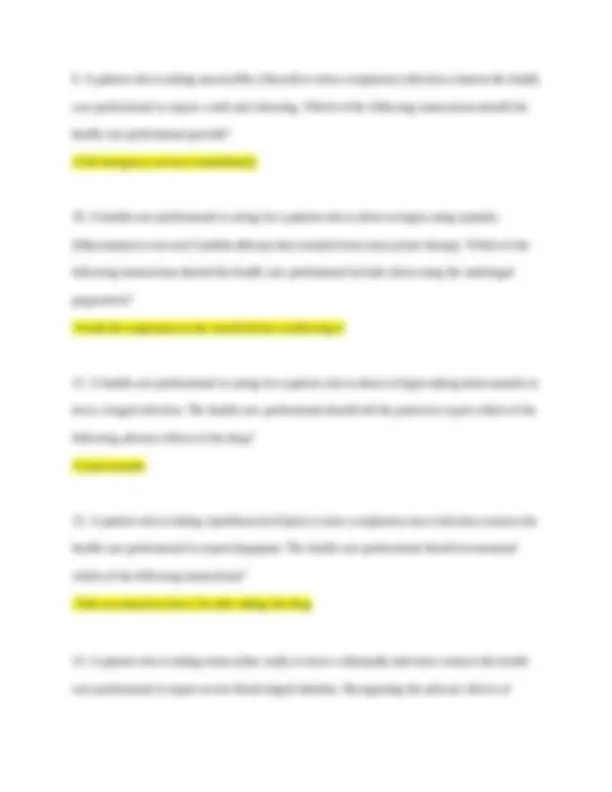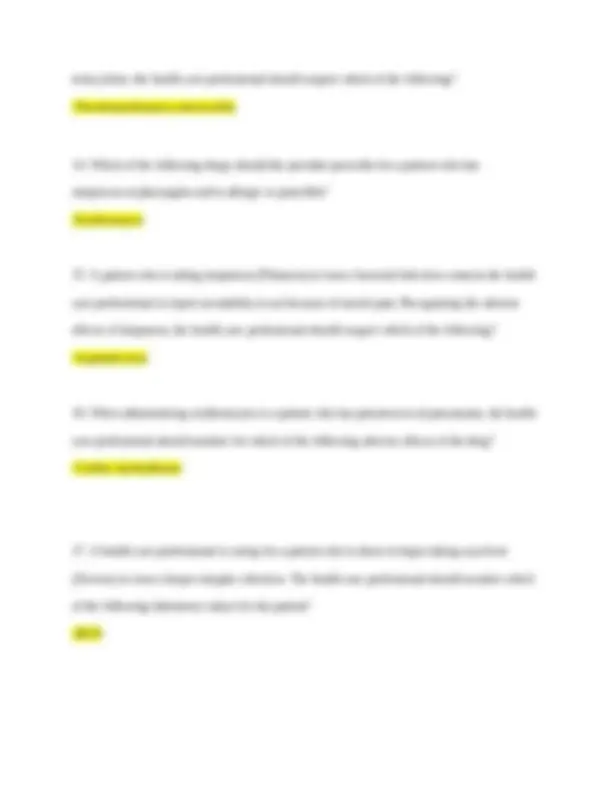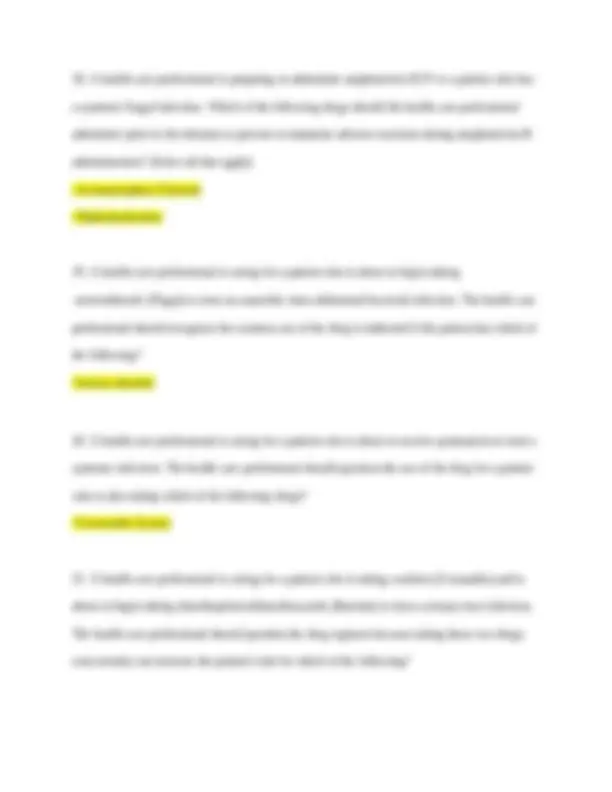





Study with the several resources on Docsity

Earn points by helping other students or get them with a premium plan


Prepare for your exams
Study with the several resources on Docsity

Earn points to download
Earn points by helping other students or get them with a premium plan
Community
Ask the community for help and clear up your study doubts
Discover the best universities in your country according to Docsity users
Free resources
Download our free guides on studying techniques, anxiety management strategies, and thesis advice from Docsity tutors
Answers to questions related to adverse effects of various antibiotics and interactions between different medications. It covers topics such as jaundice, numbness, dizziness, tendon pain, rashes, and drug interactions. Students studying pharmacology, nursing, or healthcare professions can benefit from this document as study notes or revision material.
Typology: Exams
1 / 7

This page cannot be seen from the preview
Don't miss anything!




tetracycline, the health care professional should suspect which of the following? -Pseudomembranous enterocolitis
-Cefotean -Metronidazole (Flagyl)